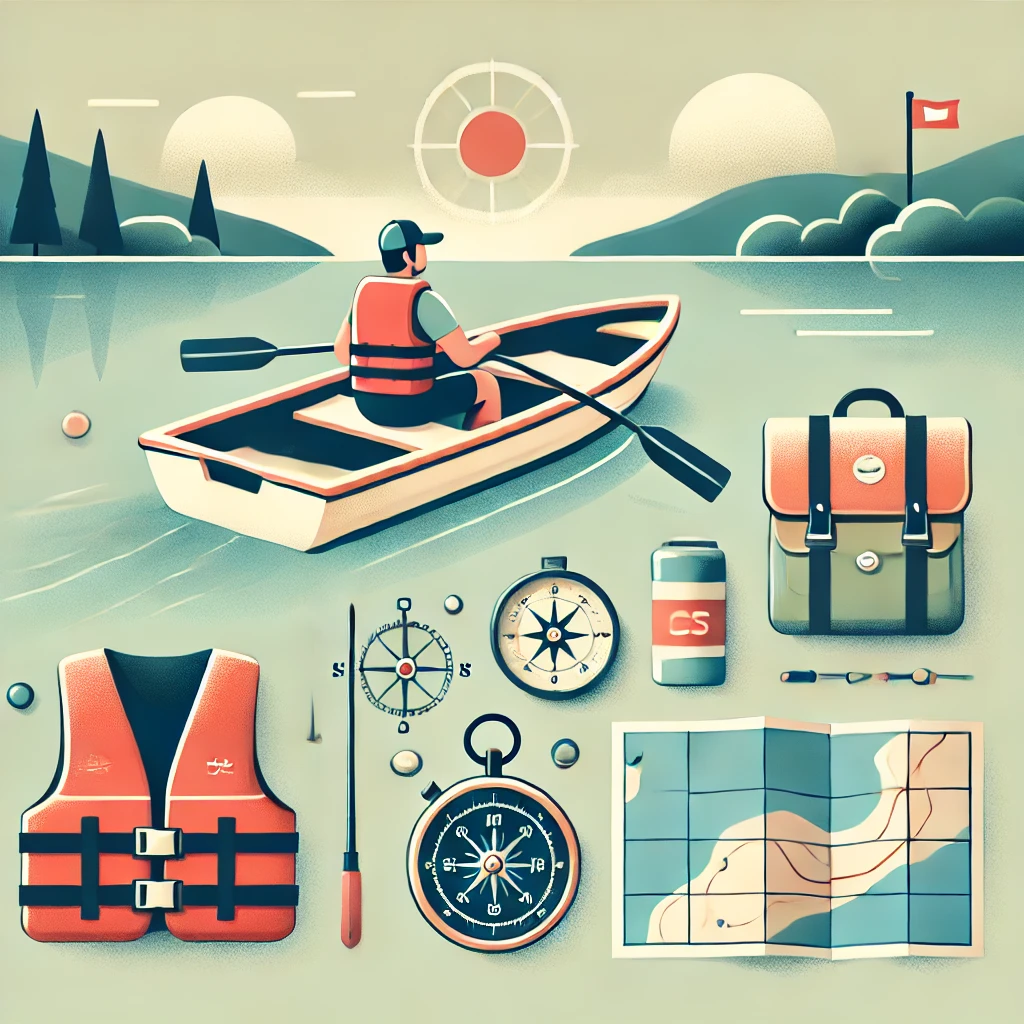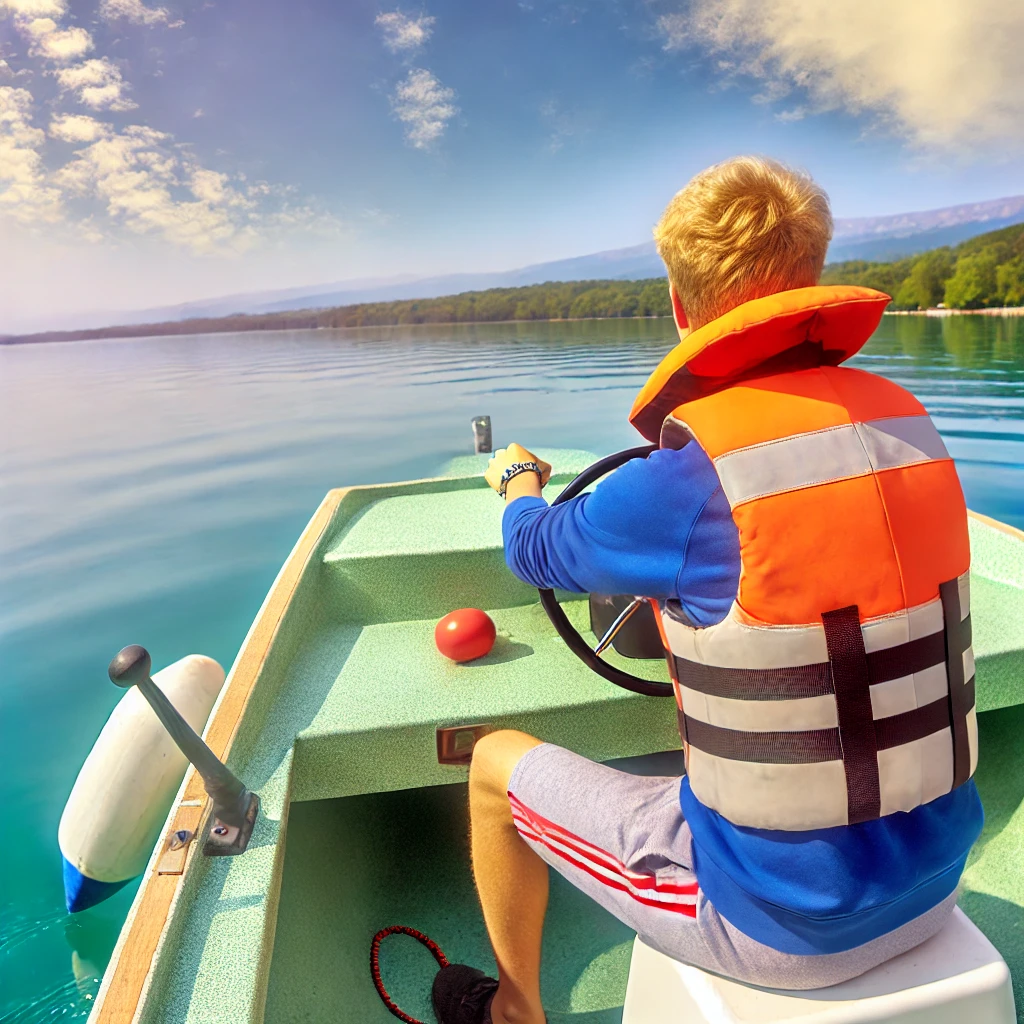Join The Fastest Growing Boating Community! - Sign Up Free Now!
Boating for Beginners: Everything You Need to Know Before Your First Voyage


Stepping into the world of boating for the first time is an exciting experience. The thrill of exploring open waters, feeling the breeze on your face, and embracing the freedom that comes with navigating your own vessel is unmatched. However, before you embark on your first voyage, there are a few essential things every beginner boater should know. From safety to navigation, this guide will walk you through the basics of boating for beginners to ensure your first trip is smooth sailing.
Start with Safety First
Safety should always be your top priority when boating, whether you’re cruising on a calm lake or venturing out into coastal waters. One of the first steps is ensuring you have the necessary safety equipment on board. By law, you must have a U.S. Coast Guard-approved life jacket for every person on the boat. Even if you’re confident in your swimming abilities, wearing a life jacket while on the water can be a lifesaver in case of an unexpected accident.
In addition to life jackets, make sure your boat is equipped with essential safety gear such as a fire extinguisher, flares, a whistle or horn, and a first aid kit. These items are crucial in emergencies, and having them on hand is not only a good practice but often required by law.
Taking a boating safety course is highly recommended, especially for beginners. These courses cover the fundamentals of safe boating, navigation, and local laws, giving you the confidence to handle your boat responsibly.
Get to Know Your Boat
Understanding the basics of how your boat operates is key before you head out on your first voyage. Take the time to familiarize yourself with the various parts of the boat, including the steering, throttle, engine controls, and any electronic navigation systems. Know where all the safety equipment is stored and how to use it.
Before you leave the dock, perform a thorough check of the boat’s systems. Inspect the engine, check fuel levels, and ensure all electronics are functioning properly. It’s also important to learn how to dock and anchor your boat—two skills that might seem simple but can be tricky for beginners. Practice docking in calm, quiet waters, and take your time to get comfortable with the process.
Understanding Boating Rules and Navigation
Just like driving a car, boating has its own set of rules and regulations to keep everyone safe. One of the most important concepts to understand is the “Rules of the Road” for boaters, which dictate who has the right of way in different situations. For example, boats under power generally must yield to sailboats, and if two powerboats are approaching head-on, both should turn to starboard (right) to avoid collision.
Navigating on the water is different from land-based navigation, as there are no street signs to guide you. Instead, boaters rely on buoys and markers. Red and green markers indicate the sides of channels, and remembering the simple rule of “red, right, return” will help you navigate safely when coming back to shore. This means that when you’re returning from the open water, the red markers should be on your right (starboard) side.
Additionally, use nautical charts or GPS devices to help you navigate unfamiliar waters. These tools provide valuable information about water depth, hazards, and navigational routes, ensuring you stay on course and avoid shallow areas that could damage your boat.
Plan Your Trip and Check the Weather
Planning is an essential part of any successful boating trip, especially if it’s your first time out on the water. Start by choosing a location that matches your skill level—calm lakes or slow-moving rivers are ideal for beginners. Once you’ve decided on your route, create a float plan and share it with someone on land. A float plan details where you’ll be going, when you expect to return, and emergency contact information in case something goes wrong.
Before setting off, always check the weather forecast. Weather can change rapidly on the water, and conditions that seem fine on land may be dangerous at sea. Pay close attention to wind speeds, waves, and any warnings about storms. If the weather looks unpredictable or severe, it’s best to postpone your trip.

Learn How to Handle Emergencies
Even with careful planning, things can still go wrong on the water. It’s important to know how to handle emergencies, such as engine failure, running aground, or getting caught in bad weather. Carrying a VHF marine radio allows you to call for help if you encounter trouble, and having a basic understanding of first aid can be invaluable if someone gets injured on board.
If you find yourself in a situation where your boat is taking on water or you’ve hit a submerged object, stay calm and act quickly. Ensure that everyone on board is wearing life jackets and attempt to assess the situation. If necessary, use flares or signal for help.
Enjoy the Experience and Take It Slow
The most important tip for beginner boaters is to take it slow and enjoy the experience. Don’t feel pressured to navigate through tricky waters or travel long distances on your first trip. Boating is meant to be a relaxing and enjoyable activity, so focus on getting comfortable with your vessel and building your confidence at your own pace.
As you gain more experience, you’ll naturally become more skilled at handling different boating situations. For now, prioritize safety, take your time learning the ropes, and embrace the freedom of being out on the water.
Final Thoughts: Starting Your Boating Journey
Boating is an incredible adventure, and your first voyage is just the beginning of a lifelong passion for being on the water. By following these boating basics for beginners, you’ll set yourself up for a safe and enjoyable experience. From understanding safety rules and navigation to checking the weather and planning your trip, these steps will help ensure smooth sailing on your maiden voyage. Now that you’re equipped with the knowledge you need, it’s time to cast off and start exploring the open waters!
Keywords: boating for beginners, beginner boating tips, boating safety, boat navigation, life jackets, float plan, boating safety course, docking a boat, weather for boating, first boating trip, beginner boating guide
Comments (0)
Please log in to add a comment.